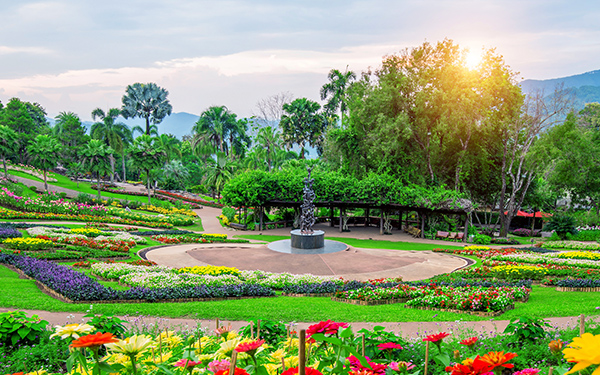Why the Faculty of Horticulture?

Horticulture
Specialization
Fruits and vegetables are foods for daily consumption and raw materials for the food industry. The food needs of human society are permanent, which ensures horticulture a market with a continuous status. Horticulture is the engine of agricultural efficiency. On the other hand, the extremely favorable natural conditions for horticultural species, from all over Romania, make the economic efficiency of a farm generally high. Supporting the development of these farms through European funds encourages entrepreneurial initiative in the field of horticulture.

Specialization of
Landscape Engineering
Beyond the productive side of horticulture, the growing urbanization and modernization of the rural space make landscaping increasingly necessary. The Faculty of Horticulture Iași has between its specializations, the artistic domain of Landscaping, respectively the architecture of parks, gardens and urban spaces. The development of a landscaping business is, compared to other entrepreneurial initiatives, easier to achieve. Landscaping projects have varying degrees of complexity and are requested by institutions, companies and individuals.

Specialization of
Environmental Engineering
A third specialization of the Faculty of Horticulture is Environmental Engineering. In the context of population growth and the advancement of climate change, the demand for environmental engineers is becoming more pronounced. These specialists are requested by government agencies, industrial companies, agricultural companies and environmental consulting companies.

Specialization of
Agricultural Biotechnologies
Agricultural Biotechnology is the youngest specialization of the Faculty of Horticulture Iasi. Biotechnologies are supported by society’s need to solve the problems it faces in the face of population growth, such as the energy crisis, the food crisis, ecological and bioremediation problems. Although considered a science of the future, this domain underlies common processes, such as the production of bread, wine, cheese, or the selective reproduction and growth of plants and animals, processes that are vital to today’s society.
Research
Articles FHI
Patras, A., 2019. Stability and colour evaluation of red cabbage waste hydroethanolic extract in presence of different food additives or ingredients. Food Chemistry, 275, 539-548. doi: 10.1016/j.foodchem.2018.09.100, IF = 5,399
Trincă L.C., Mareci D., Souto R.M., Lozano-Gorrín A.D., Izquierdo J., Burtan L., Motrescu I., Vulpe V., Pavel G., Strungaru S., Stoleriu I., 2019. Osseointegration evaluation of ZrTi alloys with hydroxyapatite-zirconia-silver layer in pig’s tibiae. Applied Surface Science. 1;487:127-37, IF=5,155
Motrescu I., Ciolan M.A. , Sugiyama K., Kawamura N., Nagatsu M., 2018. Use of preionization electrodes to produce large-volume, densely distributed filamentary dielectric barrier discharge for materials surface processing, Plasma Sources Science and Technology 27(11), doi: 10.1088/1361-6595/aae8fd, IF 4.128
Projects
Projects FHI
THE NanoPlant PROJECT AT THE END: a success in obtaining gold nanoparticles and using them as a treatment for tomatoes!
The NanoPlant project “Use of designed nanomaterials in plant science” financed by UEFISCDI with the amount of 450.000 lei (approx.. 90000 euros), coordinated by lecturer Ana CAZACU, PhD, from the Biophysics discipline of the Faculty of Horticulture Iași, is nearing the end.
NanoPlant brings new knowledge related to the understanding of the interaction between nanomaterials and plants, as well as their interaction with soil microorganisms.
IULS Campus Map
All the locations you need to know as a student of the “Ion Ionescu de la Brad” University of Life Sciences in Iași
